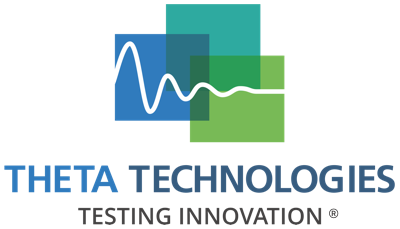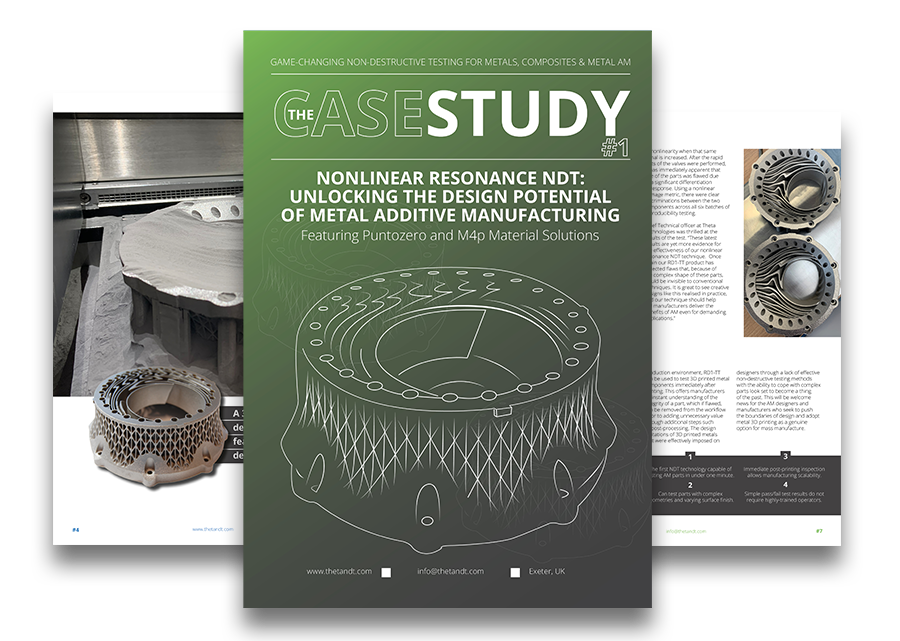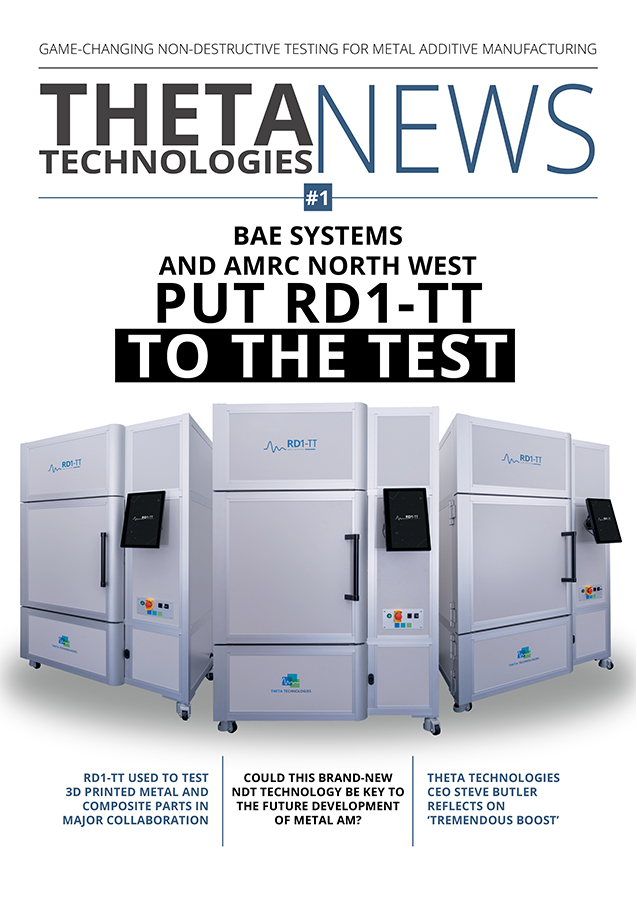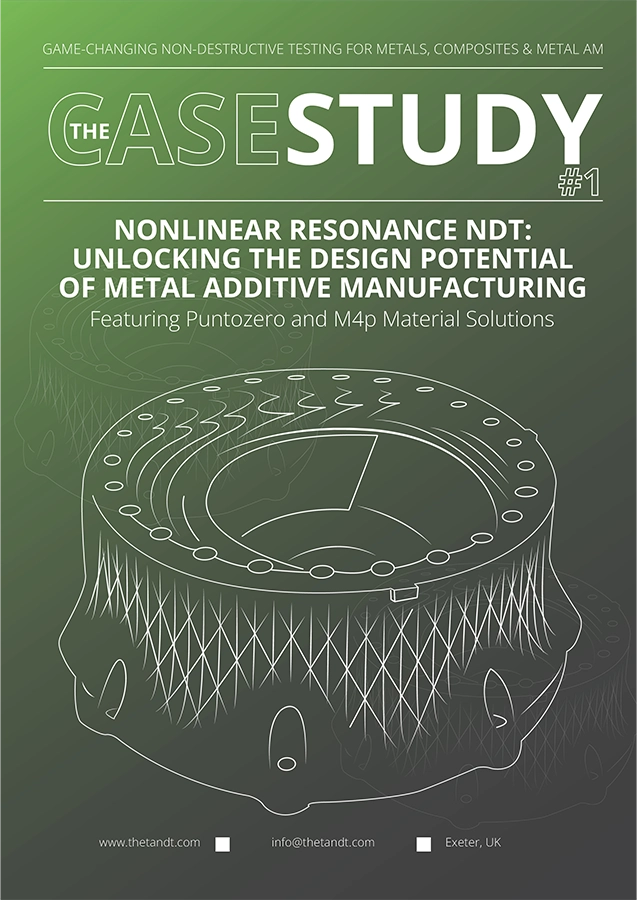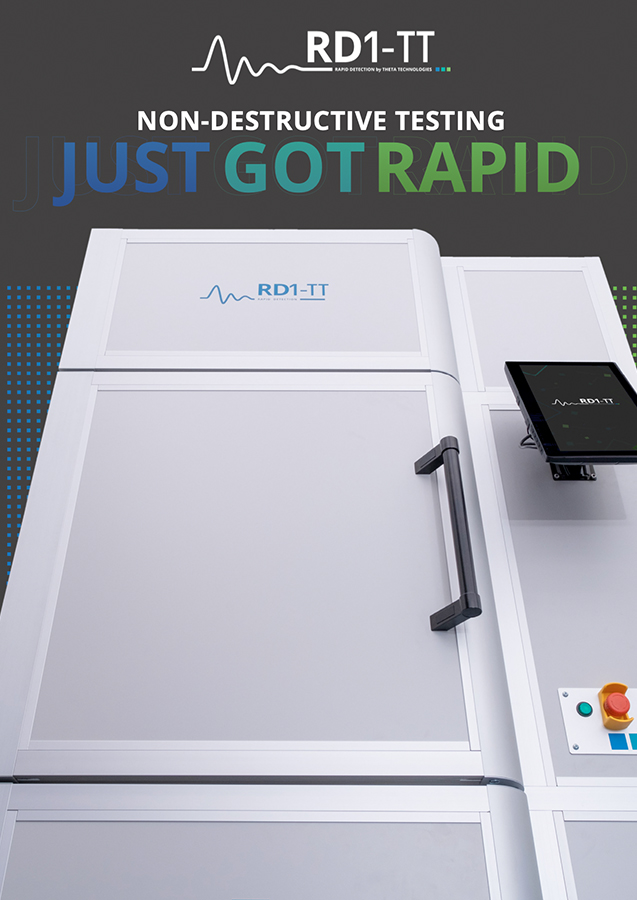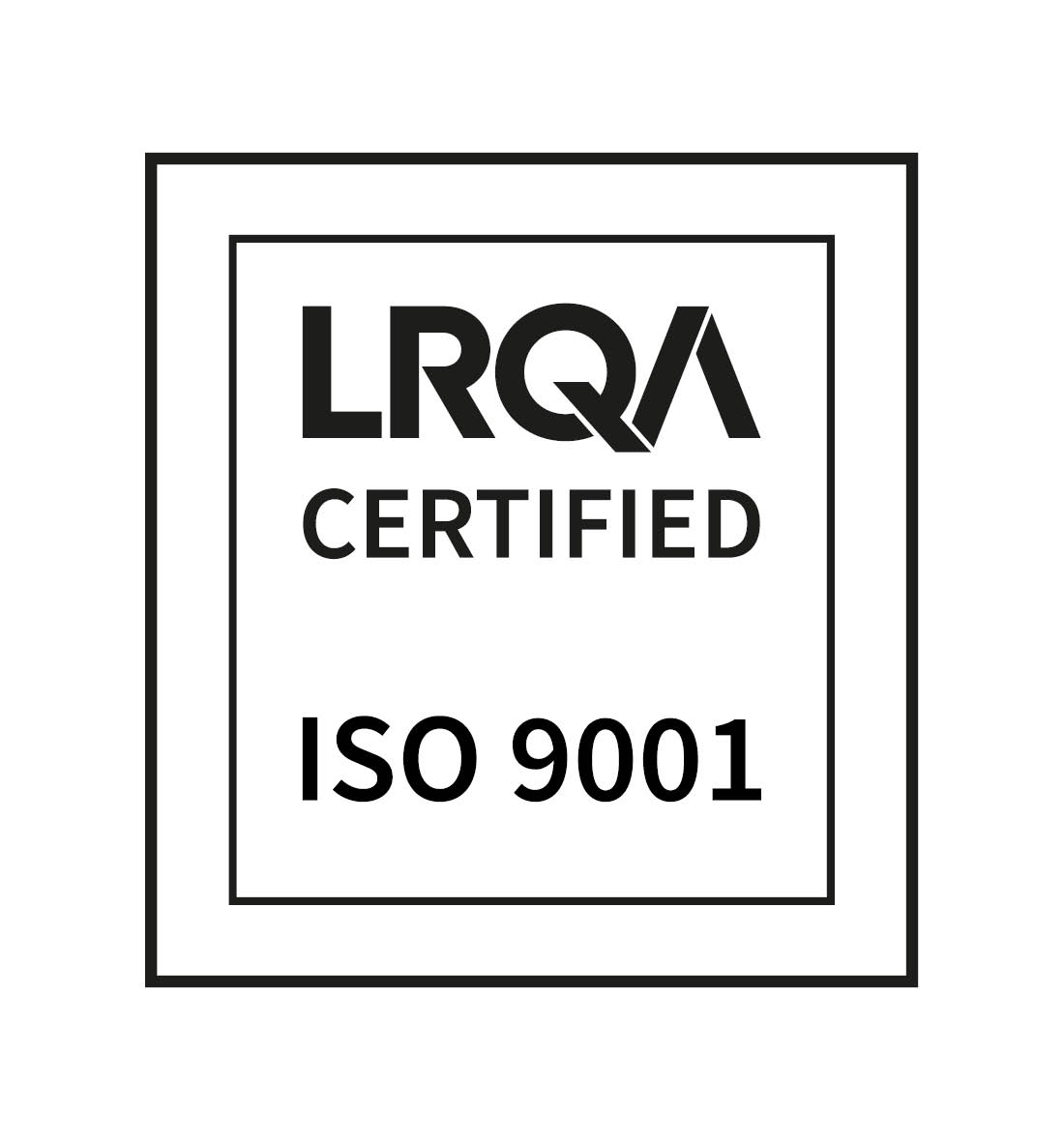The Case Study
Issue 1
Nonlinear Resonance NDT: Unlocking the design potential of metal AM
A case study featuring 3D print designers Puntozero and metal powder manufacturers m4p material solutions GMBH
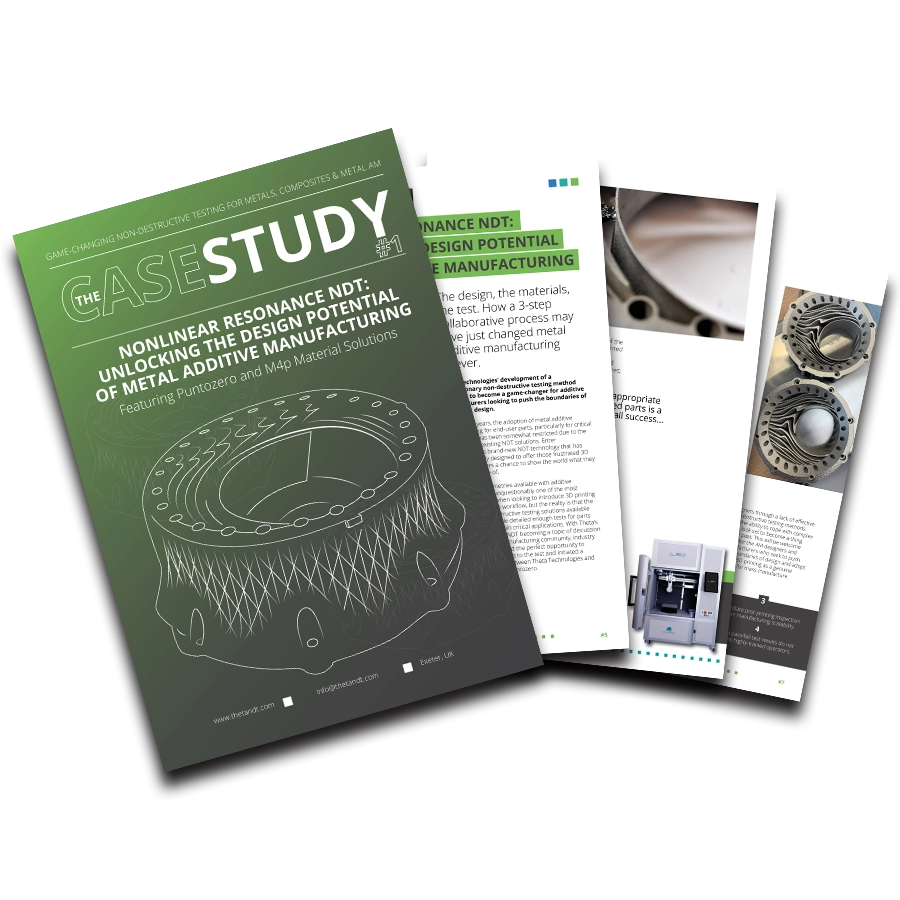
Case Study | NDT for additive manufacturing
Nonlinear resonance NDT: Unlocking the design potential of metal additive manufacturing
The complex geometries available with additive manufacturing are unquestionably one of the most appealing factors when looking to adopt this versatile technology, but existing non-destructive testing techniques have failed to help deliver confidence in AM part validation. Discover how Theta Technologies’ nonlinear resonance NDT technology has helped AM part manufacturers with this case study.
Case Study Details
The parts: Metal Valves
Manufacturing method: Additive Manufacturing
Previous inspection method: Dye Penetrant/Visual Inspection
Collaborators: Puntozero, m4p Material Solutions Gmbh
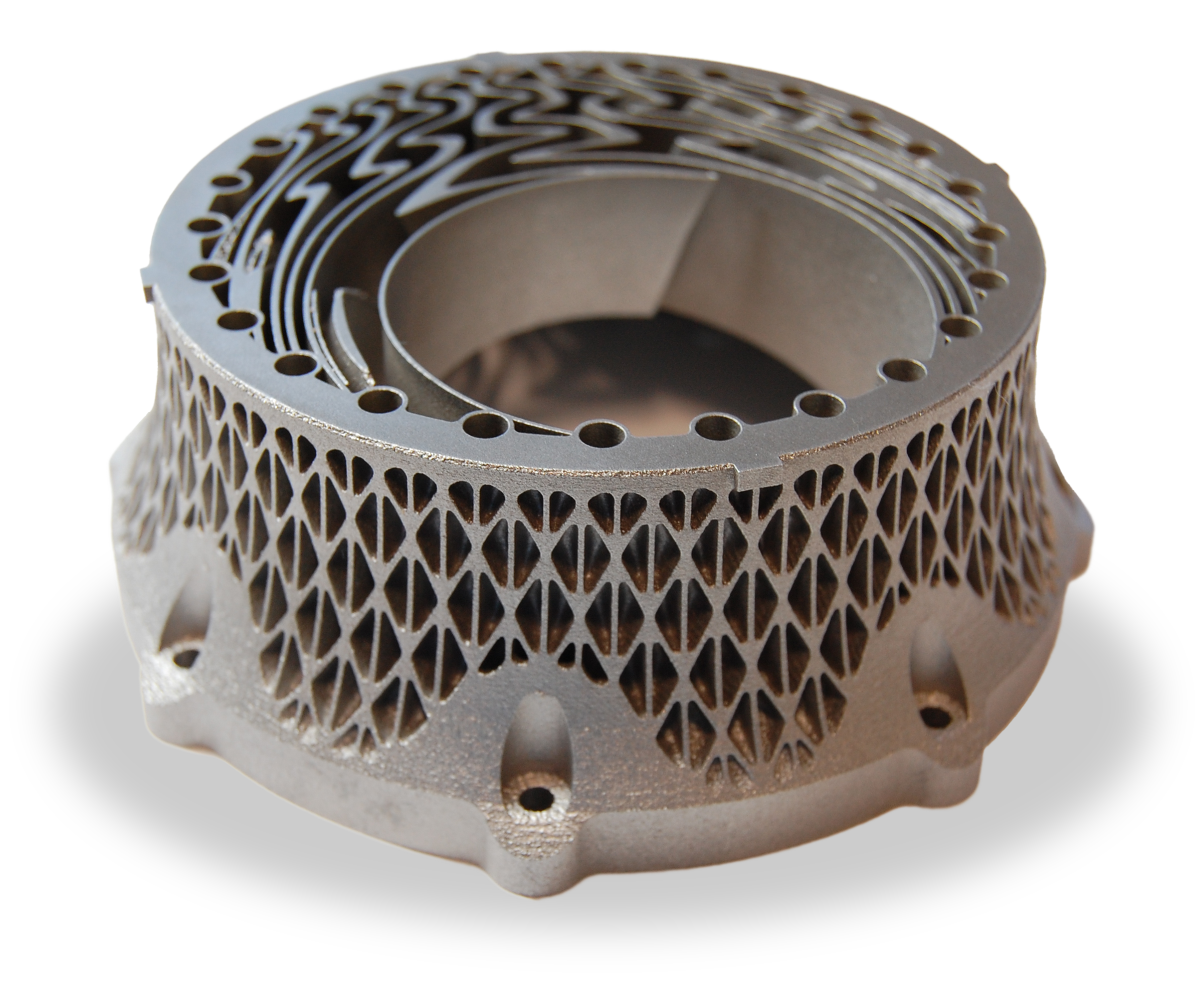
Key Take Away #1
Nonlinear resonance NDT was capable of successfully testing 3D printed metal valves for defects and flaws.
Key Take Away #2
Theta Technologies’ RD1-TT was able to successfully identify flaws within the additive-manufactured components.
Key Take Away #3
Reproducibility tests were performed to validate the results and assess the overall condition of the 3D printed parts.
Unlocking the design potential of metal additive manufacturing
Theta Technologies’ development of a revolutionary non-destructive testing method looks set to become a game-changer for additive manufacturers looking to push the boundaries of geometric design.
Over recent years, the adoption of metal additive manufacturing for end-user parts, particularly for critical applications has been somewhat restricted due to the limitations of existing NDT solutions. Enter RD1-TT; Theta’s brand-new NDT technology that has been specifically designed to offer those frustrated 3D printing designers a chance to show the world what they are truly capable of.
The complex geometries available with additive manufacturing is unquestionably one of the most appealing factors when looking to introduce 3D printing into any production workflow, but the reality is that the majority of non-destructive testing solutions available simply cannot provide detailed enough tests for parts intended for use within critical applications. With Theta’s nonlinear resonance NDT becoming a topic of discussion within the additive manufacturing community, industry insiders 3dpbm spotted the perfect opportunity to put RD1-TT’s credentials to the test and initiated a collaborative project between Theta Technologies and 3D design specialists Puntozero.
Behind every shape, there is a function, and we often tend to connect them in a reciprocal and direct link, but it is extremely clear in this component how the shapes must evolve according to materials, technologies and printing parameters
Puntozero is an innovative 2022 start-up with the goal of creating specific design methodologies for additive manufacturing. The company seeks to move away from traditional design constraints and fully realise the potential of AM by exploiting the concepts of generative design, Topology Optimisation, Implicit Modelling, and Lattice Structures. Co-founder of Puntozero, Francesco Leonardi states that “Behind every shape, there is a function, and we often tend to connect them in a reciprocal and direct link, but it is extremely clear in this component how the shapes must evolve according to materials, technologies and printing parameters.”.
Puntozero’s recent work with 3D printing metal powder manufacturers m4p material solutions Gmbh on the production of valves provided an ideal opportunity to put Theta’s nonlinear resonance technology to the test. Metal powder manufacturer m4p material solutions Gmbh pride themselves on the development, manufacturing, refining and selling of metal powders for an array of 3D printing processes. They provide a key connection between powder metallurgy and additive manufacturing with a key focus on what their customers require.
The valves, designed by Puntozero that were to be the subject of the non-destructive test were printed using m4p material solutions’ in-house printers and featured multiple complex design features; something that a nonlinear resonance test is unaffected by.
The selection of the appropriate material for 3D printed parts is a key factor in the overall success of a component. Development Engineer at m4p material solutions Gmbh, Bastian Kallenbach realises the significance in learning about each part and understanding its intended use in order to select the most appropriate material for the job. “Due to the specific requirements for fluid-conveying material, the highly corrosion-resistant Superduplex-alloy m4p™ Type10-SDX was selected as a suitable enabler. Its characteristics profile also matches a reasonable level of wear resistance as well as an adaptable process-ability, which makes it possible to control residual stress-prone geometries and thus print them reliably and reproducibly”. A successful test of the 3D printed valves would therefore not only confirm Theta’s credentials in the non-destructive testing of complex 3D printed components, but also validate m4p material solutions’ meticulous attention to detail towards metal powder production.
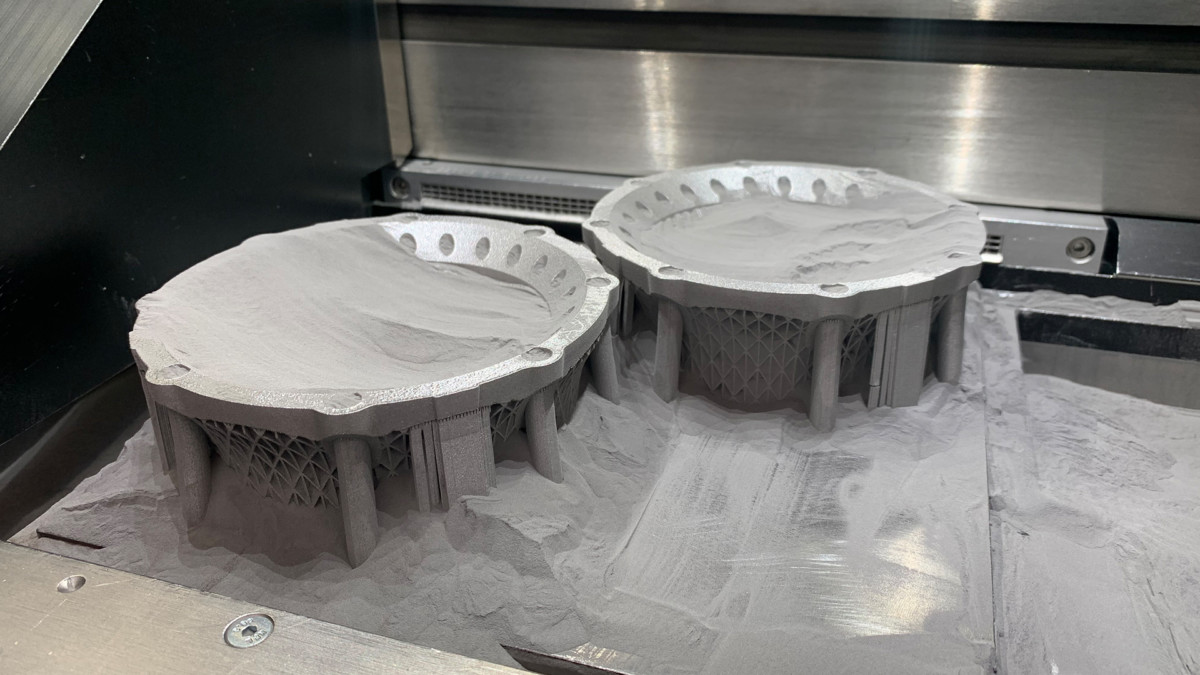
The results
As part of the process, Theta Technologies were provided with two 3D printed metal valves, both of which had previously been tested using dye penetrant and visual inspection non-destructive testing methods. Both samples were tested using RD1-TT; a machine that can not only cope with the complex design geometries associated with 3D printed materials but can also conduct an entire test of a single component in under one minute.
This makes RD1-TT the perfect solution for deployment as a rapid triaging technique or for those looking to utilise AM for mass manufacturing. A nonlinear resonance test is undertaken by exciting a component in order to generate a linear response. If a part is flaw free, there will be no change in the response received by the detector once the excitation of the part is increased. If a part is flawed however, there will be clear signs of nonlinearity when that same signal is increased. After the rapid tests of the valves were performed, it was immediately apparent that one of the parts was flawed due to a significant differentiation in response. Using a nonlinear damage metric, there were clear discriminations between the two components across all six batches of reproducibility testing.
Chief Technical officer at Theta Technologies was thrilled at the results of the test. “These latest results are yet more evidence for the effectiveness of our nonlinear resonance NDT technique. Once again our RD1-TT product has detected flaws that, because of the complex shape of these parts, would be invisible to conventional techniques. It is great to see creative designs like this realised in practice, and our technique should help AM manufacturers deliver the benefits of AM even for demanding applications.”
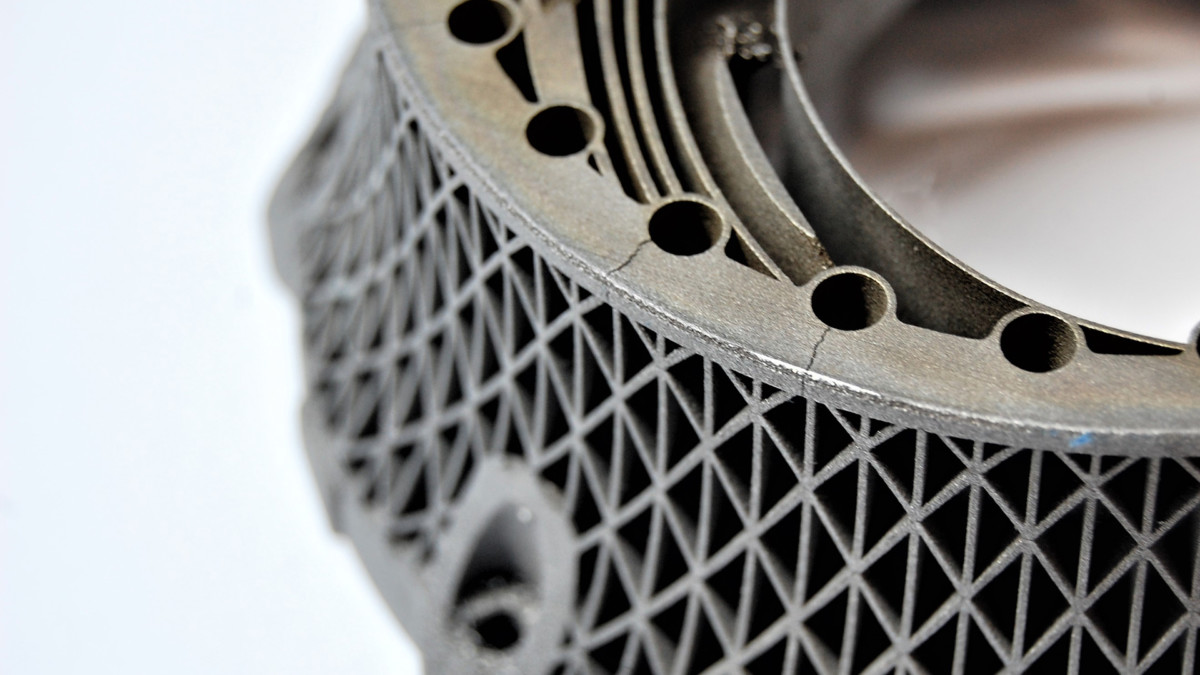
The conclusion
The overall test process validates what Theta Technologies have believed all along, that increasingly complex AM metal parts can now subject to a rapid and more importantly accurate non-destructive test process. When used in a production environment, RD1-TT can be used to test 3D printed metal components immediately after printing. This offers manufacturers an instant understanding of the integrity of a part, which if flawed, can be removed from the workflow prior to adding unnecessary value through additional steps such as post-processing. The design limitations of 3D printed metals that were effectively imposed on designers through a lack of effective non-destructive testing methods with the ability to cope with complex parts look set to become a thing of the past. This will be welcome news for the AM designers and manufacturers who seek to push the boundaries of design and adopt metal 3D printing as a genuine option for mass manufacture.
other publications
Whether you’re looking to stay up-to-date with our latest news or read about how our game-changing non-destructive testing technology is helping our customers, we’re certain that our rapidly expanding digital publication library has something for you.
Issue #1
Theta Technology News
BAE Systems and AMRC North West put RD1-TT to the test in major collaboration
Issue #1
The Case Study
Nonlinear resonance NDT: Unlocking the design potential of metal AM. Featuring Puntozero and m4p material solutions GMBH
Address
Theta Technologies Limited
3 Babbage Way
Exeter Science Park
Clyst Honiton
Exeter
EX5 2FN
United Kingdom
Terms & Conditions Privacy & Cookie Policy Anti-Slavery Policy © Theta Technologies. 2024
